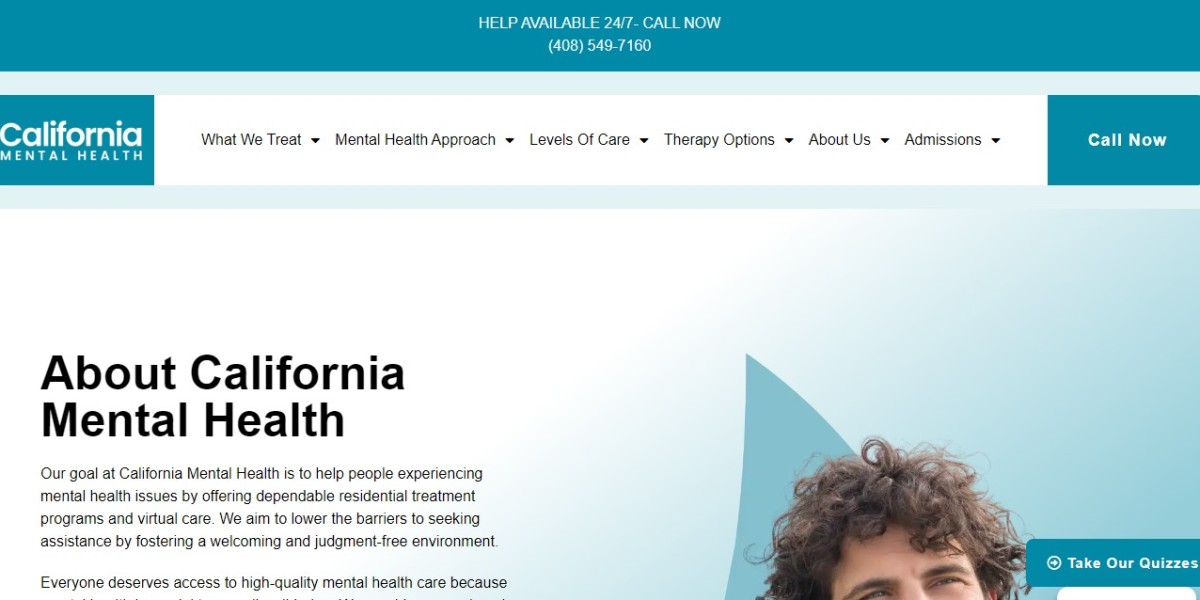Depression is a pervasive and debilitating mental health condition that affects millions of individuals across the globe. In California, a state renowned for its progressive healthcare systems and innovative treatment options, there are numerous pathways to recovery for those struggling with depression. This article explores the various treatment modalities available in California, highlighting the importance of seeking professional help and the resources provided by organizations like CAMentalHealth.
Understanding Depression
Depression is more than just a fleeting feeling of sadness or a rough patch. It is a serious mental health disorder characterized by persistent feelings of hopelessness, a lack of interest in daily activities, and a variety of physical and emotional problems. Symptoms of depression can vary in severity and duration but often include:
- Persistent sad, anxious, or "empty" mood
- Loss of interest or pleasure in hobbies and activities
- Fatigue and decreased energy
- Difficulty concentrating, remembering, or making decisions
- Insomnia or oversleeping
- Appetite and/or weight changes
- Thoughts of death or suicide
Depression Treatment Options in California
California offers a wide array of treatment options for depression, ranging from traditional therapies to cutting-edge innovations. Here are some of the most effective treatments available:
- Psychotherapy
- Cognitive Behavioral Therapy (CBT): This widely practiced form of therapy helps patients identify and change negative thought patterns and behaviors. CBT is effective in treating depression by promoting healthier ways of thinking and coping.
- Interpersonal Therapy (IPT): IPT focuses on improving communication skills and addressing issues in relationships that may contribute to depressive symptoms.
- Dialectical Behavior Therapy (DBT): Originally developed for borderline personality disorder, DBT has also been effective in treating depression by teaching patients mindfulness, distress tolerance, emotional regulation, and interpersonal effectiveness.
- Medication Management
- Antidepressants: Medications such as selective serotonin reuptake inhibitors (SSRIs), serotonin and norepinephrine reuptake inhibitors (SNRIs), and atypical antidepressants can help balance chemicals in the brain that affect mood and emotions.
- Mood Stabilizers and Antipsychotics: These medications are sometimes used in conjunction with antidepressants to manage symptoms of severe depression or bipolar disorder.
- Innovative Treatments
- Transcranial Magnetic Stimulation (TMS): TMS is a non-invasive procedure that uses magnetic fields to stimulate nerve cells in the brain. It is particularly useful for patients who have not responded to traditional treatments.
- Ketamine Therapy: Ketamine, originally an anesthetic, has shown rapid antidepressant effects, especially in treatment-resistant cases. Administered under medical supervision, ketamine therapy offers a new hope for many patients.
- Electroconvulsive Therapy (ECT): ECT is used for severe depression that has not responded to other treatments. It involves brief electrical stimulation of the brain while the patient is under anesthesia.
- Holistic Approaches
- Exercise and Nutrition: Regular physical activity and a balanced diet can significantly impact mood and overall well-being.
- Mindfulness and Meditation: These practices help individuals stay grounded and manage stress, which can alleviate depressive symptoms.
- Support Groups and Community Resources: Connecting with others who share similar experiences can provide emotional support and reduce feelings of isolation.
Seeking Professional Help
If you or a loved one is struggling with depression, it is crucial to seek professional help. Early intervention and appropriate treatment can lead to better outcomes and a higher quality of life. Organizations like CAMentalHealth are dedicated to providing comprehensive care and support for those dealing with depression.
For more information on depression treatment and to explore available resources, visit CAMentalHealth. They offer a range of services and treatments tailored to meet the unique needs of each individual, helping them navigate the path to recovery with compassion and expertise.
Conclusion!!
Depression is a challenging condition, but with the right treatment and support, recovery is possible. California's diverse and innovative treatment options provide hope and healing for those affected by depression. At CAMentalHealth, we are committed to helping individuals find effective depression treatment and achieve mental wellness. If you or someone you know is struggling, don't hesitate to reach out and take the first step towards recovery.



